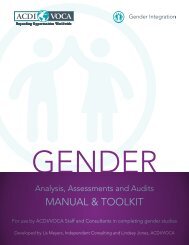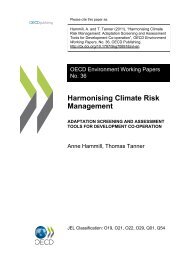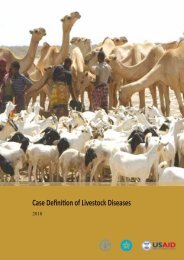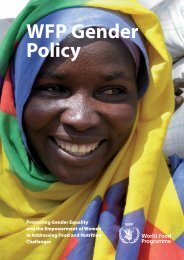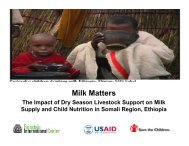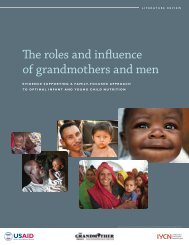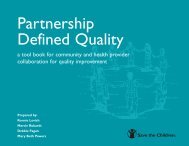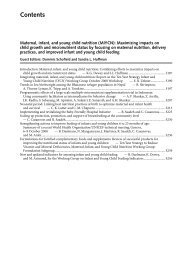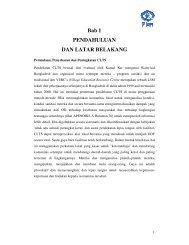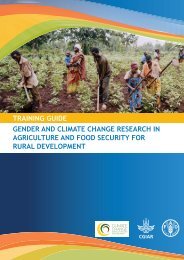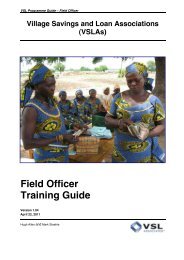Module 2. Theorethical Concepts of Gender - FSN Network Portal
Module 2. Theorethical Concepts of Gender - FSN Network Portal
Module 2. Theorethical Concepts of Gender - FSN Network Portal
Create successful ePaper yourself
Turn your PDF publications into a flip-book with our unique Google optimized e-Paper software.
Mainstreaming <strong>Gender</strong> into Water, Sanitation and Hygiene (WASH) Programs<br />
<strong>Module</strong> 2: Theoretical <strong>Concepts</strong> <strong>of</strong> <strong>Gender</strong><br />
Lesson 9: Different Approaches to <strong>Gender</strong> and Development: a Historical Understanding<br />
Issues Women In Development (WID) <strong>Gender</strong> And Development (GAD)<br />
Strategies As a strategy, emphasizes<br />
women’s components and<br />
integrated projects in order to<br />
increase women’s productivity<br />
and ability to look after the<br />
household.<br />
Features<br />
WID was solidly grounded in<br />
traditional modernisation theory<br />
that wrongly assumed that<br />
women were not integrated into<br />
the process <strong>of</strong> development.<br />
WID accepted existing social<br />
structures and did not question<br />
the sources <strong>of</strong> women’s<br />
subordination and oppression.<br />
WID adopted a nonconfrontational<br />
approach.<br />
It did not question why women<br />
had not benefited from earlier<br />
development strategies.<br />
It treated women as an<br />
undifferentiated category,<br />
overlooking the influences <strong>of</strong><br />
class, race, culture and other<br />
factors.<br />
WID focused exclusively on<br />
productive aspects <strong>of</strong> women’s<br />
work, ignoring or minimising the<br />
reproductive side <strong>of</strong> women’s<br />
lives.<br />
As a strategy, establishes projects<br />
and programs to identify and<br />
address practical needs determined<br />
by women and men to improve their<br />
condition.<br />
At the same time, GAD addresses<br />
women’s strategic interests and the<br />
strategic interests <strong>of</strong> the poor<br />
through<br />
people-centered<br />
development.<br />
GAD rejects the public/private<br />
dichotomy.<br />
It gives special attention to the<br />
position <strong>of</strong> women in the family; the<br />
so-called ‘private sphere’. It<br />
emphasizes the state’s duty to<br />
provide social services for the<br />
advancement <strong>of</strong> both women and<br />
men.<br />
Women and men are both seen as<br />
agents <strong>of</strong> change rather than<br />
women as passive recipients <strong>of</strong><br />
development assistance. On the<br />
one hand, men are seen as capable<br />
<strong>of</strong> supporting women’s equality. On<br />
the other hand, GAD stresses the<br />
need for women to organise<br />
themselves for a more effective<br />
political voice.<br />
GAD strengthens legal rights,<br />
including the reform <strong>of</strong> inheritance<br />
and land laws.<br />
GAD is interested in changing the<br />
existing social power relations in<br />
society between men and women,<br />
aiming for a more equitable sharing<br />
in development.<br />
Source: Adapted from Oxfam 1994<br />
A Training Manual for Water Pr<strong>of</strong>essionals developed collaboratively by PROTOS and SNV, 01/02/2007<br />
<strong>2.</strong>60



